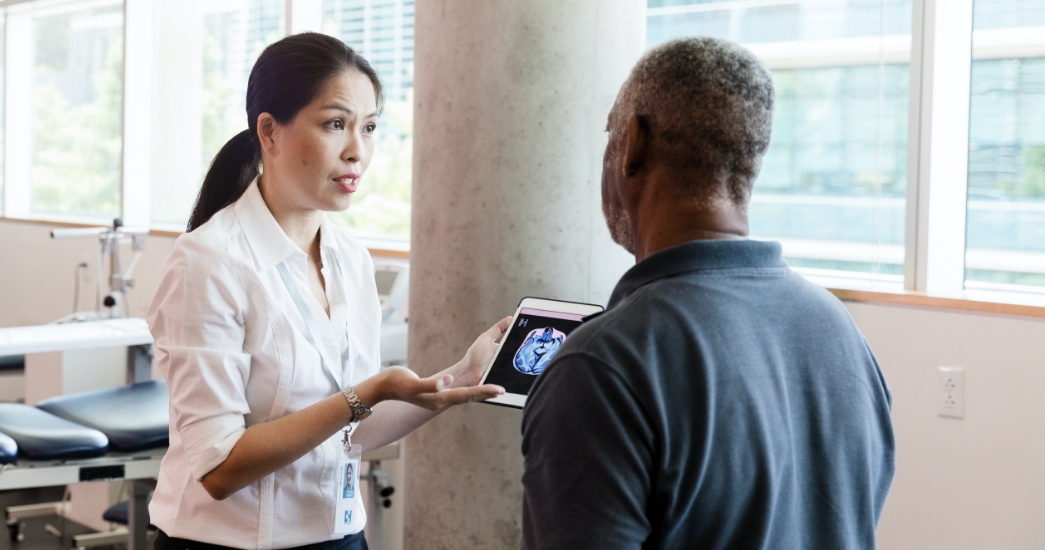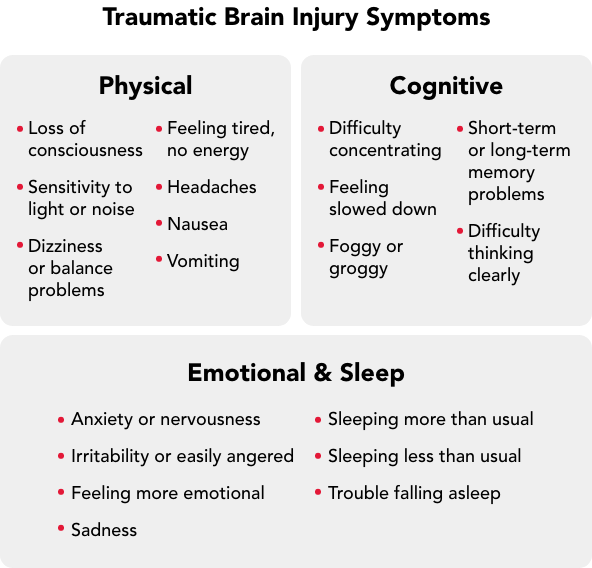
Published March 2022
There are an estimated 1.7 million people in the U.S. each year who experience a traumatic brain injury (TBI). Three out of every four TBIs are classified as concussions, which are also known as mild traumatic brain injuries. While TBIs can range from mild to severe, all injuries risk impacting the brain and can have lasting effects on how a person thinks, feels, learns, acts and even sleeps.
Here, we’ll explore the relationship between brain trauma and behavioral health and how to find support if you or a loved one might be experiencing ongoing symptoms.
 How can brain injuries impact behavioral health?
How can brain injuries impact behavioral health?
When a person experiences a jolt or impact that causes sudden movement to the brain, this can cause chemical changes, or the stretching and damaging of brain cells. While you may be familiar with the more obvious physical symptoms of TBIs such as nausea or dizziness, there are many other symptoms that can negatively affect someone’s behavioral health. Whether it’s concentration problems, anxiety or sleeplessness, some of these less obvious TBI symptoms may be hard to connect to the initial injury but can have a significant impact on everyday life.

Source: Mayo Clinic
 Understanding the long-term effects.
Understanding the long-term effects.
For some individuals, brain injury symptoms can clear up for some individuals in the days, weeks or months following an injury. But in others, the injury can cause physical and biochemical changes in the brain that have a much longer-lasting impact. Here are some of the more common long-term behavioral health issues some people can experience after brain trauma:
Anxiety – People who have had a TBI may experience anxiety after brain trauma. For some, this can mean anxious feelings over the injury itself, while others may not fully understand the cause of anxiety as a symptom of the TBI.
Depression – Feelings of loss, sadness and frustration can be common, especially if a person is experiencing long-term symptoms that have made it difficult or impossible to return to what they once considered to be normal life.
Sleep problems – Long-term sleep issues affect nearly 60% of people who are recovering from a TBI. When a person doesn’t get enough quality sleep, it can negatively impact overall well-being, cause low energy levels, fatigue and even worsen other symptoms like depression and anxiety.
 The path to recovery.
The path to recovery.
Every person’s TBI experience and recovery is different. If you or a loved one has had a brain injury, it’s important to work with your doctor to create a plan that’s specific to you and your unique symptoms. Most importantly, be patient with yourself or the person who might be recovering. Both Harvard Pilgrim Health Care and Tufts Health Plan provide coverage for professional mental health support, as well as treatments like acupuncture and chiropractic care, which can help alleviate some of the physical symptoms of a TBI that could be causing pain or distress. Additionally, members have access to self-support health apps, which can provide coping tools for and help manage depression, anxiety and stress.
To confirm eligibility for any programs or services mentioned in this article as it relates to your specific health plan, please reach out to your account executive or HR benefits team. You may also speak to our member services team at (888)-333-4742 or by sending a secure email. And for plan details and other member resources, log in to the member portal.


